Dubai invites metro extension interest
23 October 2023
Dubai’s Roads & Transport Authority (RTA) has invited contractors to express their interest by 24 November in bidding for the contract to expand the 90-kilometre Dubai Metro scheme.
The planned Blue Line will extend the existing Red and Green lines of the metro.
The Green Line extension will commence from its current terminus at Creek Station in the Jadaf area. It will cross over to the Dubai Creek Harbour development and continue through Ras al-Khor, International City, Dubai Silicon Oasis and Academic City before concluding near the Desert Rose project. The line will have 11 stations.
The Red Line extension will connect its existing terminus in Rashidiya to Mirdif City Centre and continue through Mirdif and Warqaa before joining the Green Line extension in International City.
The project was put on hold during the Covid-19 pandemic and was reactivated in early 2022, when UK-based Atkins and Grimshaw, US-based Parsons and France’s Egis restarted design work.
MEED previously reported that Dubai's RTA is expected to issue tender documents for the expansion of Dubai Metro in the fourth quarter of the year.
In October 2022, MEED reported that groups interested in bidding for the project had started to form. They included France’s Alstom with Spain’s FCC and Beijing-based China State Construction Engineering Corporation; Germany’s Siemens with India’s Larsen & Toubro, the local Alec and Belgium’s Besix; and China Railway Construction Corporation (CRCC) with China Civil Engineering Construction Company (CCECC).
Two billion commuters
Since its public launch on 9 September 2009, the number of riders that have used the Dubai Metro network has exceeded 2 billion, according to the RTA.
The Red Line has transported 1.342 billion commuters, while the Green Line has served 673.531 million passengers.
In 2022, the average daily number of riders on Dubai Metro exceeded 616,000.
The metro extension is part of Dubai’s plans to improve residents' quality of life by cutting journey times as outlined in its newly approved 20-minute city policy.
The last metro project to be completed in Dubai was Route 2020, which connected the Red Line to the Expo 2022 Dubai site. The AED10.6bn ($2.9bn) contract to design and build the line was awarded to a consortium of Alstom, Spain’s Acciona and Turkiye’s Gulermak.
Dubai Metro has also significantly impacted the real estate market, particularly properties within a 15-minute walking distance from metro stations. According to a recent report by CBRE, these properties tend to outperform the broader real estate market in terms of both property value and rental performance.
Further extensions are expected to create new opportunities for businesses and residents alike.
Exclusive from Meed
-
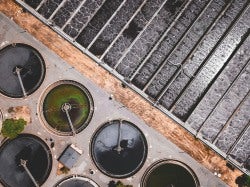 Dubai plans EPC tender for Warsan sewage treatment plant
Dubai plans EPC tender for Warsan sewage treatment plant25 February 2026
-
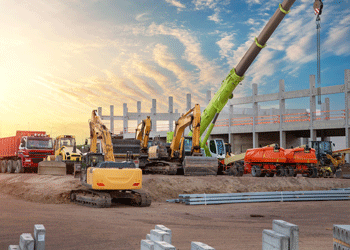 Aramco firm and Arcapita sign logistics facility deal
Aramco firm and Arcapita sign logistics facility deal25 February 2026
-
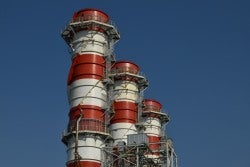 Algeria gives bidders more time for 1.2GW plant
Algeria gives bidders more time for 1.2GW plant25 February 2026
-
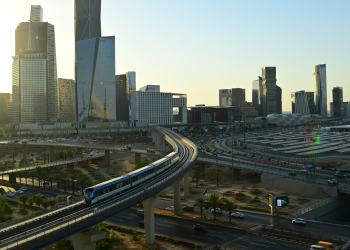 Riyadh tenders Line 7 metro project management deal
Riyadh tenders Line 7 metro project management deal25 February 2026
-
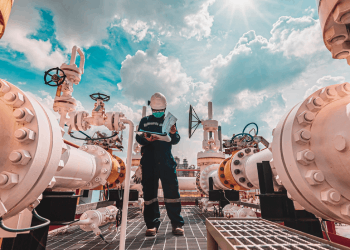 Six companies prequalify for Algeria gas contract
Six companies prequalify for Algeria gas contract25 February 2026
All of this is only 1% of what MEED.com has to offer
Subscribe now and unlock all the 153,671 articles on MEED.com
- All the latest news, data, and market intelligence across MENA at your fingerprints
- First-hand updates and inside information on projects, clients and competitors that matter to you
- 20 years' archive of information, data, and news for you to access at your convenience
- Strategize to succeed and minimise risks with timely analysis of current and future market trends

Related Articles
-
 Dubai plans EPC tender for Warsan sewage treatment plant
Dubai plans EPC tender for Warsan sewage treatment plant25 February 2026

Register for MEED’s 14-day trial access
Dubai Municipality is preparing to tender the main construction package for the Warsan sewage treatment plant (STP) by the end of the year, according to sources close to the project.
The scheme is linked to the deep sewerage tunnels infrastructure programme being implemented by the municipality’s sewerage and recycled water projects department.
As MEED understands, the Warsan STP had previously been expected to be procured as a public-private partnership (PPP) scheme.
However, sources confirmed that the main construction package will now be procured as an engineering, procurement and construction (EPC) contract.
The project involves the construction of a sewage treatment plant with a capacity of about 175,000 cubic metres a day (cm/d), including treatment units, sludge handling systems and associated infrastructure.
The plant, estimated to cost about $326m, will be developed at the existing Warsan complex, where the municipality is also progressing separate expansion and rehabilitation packages.
These include Warsan STP Phase 1 (DS-355/1), which involves sewerage and stormwater network upgrades, and Stage 2 of the Al-Warsan sewage treatment plant (DS-203/2), comprising new treatment units
Kuwait-headquartered Mohammed Abdulmohsin Al-Kharafi & Sons is the main EPC contractor for both projects.
Separately, the municipality is also progressing the expansion and upgrade of the first and second phases of the Jebel Ali STP.
The upgraded facility will be capable of treating an additional sewage flow of 100,000 cm/d.
Earlier this month, contractors were invited to prequalify for the contract.
The bid submission deadline is 2 April.
https://image.digitalinsightresearch.in/uploads/NewsArticle/15765751/main.jpg -
 Aramco firm and Arcapita sign logistics facility deal
Aramco firm and Arcapita sign logistics facility deal25 February 2026
Asmo, the logistics joint venture of Saudi Aramco and DHL Supply Chain, has signed an agreement with Bahrain‑headquartered Arcapita Group Holdings to deliver a 1.4-million-square-metre (sq m) built-to-suit logistics complex at King Salman Energy Park (Spark).
The project will feature a 43,000 sq m temperature-controlled, Grade A warehouse, more than 3,000 sq m of office and staff amenities, 5,300 sq m dedicated to chemical storage, and an open yard spanning about 1.2 million sq m.
Planned for large-scale industrial use, the site is expected to incorporate advanced warehouse and building management systems, end-to-end digital connectivity, automation and robotics.
It will also be developed in line with internationally recognised sustainability standards, featuring solar (photovoltaic) readiness, EV charging infrastructure and a target of LEED Gold certification.
The development is aimed at supporting the next stage of Saudi Arabia’s logistics and supply chain expansion.
Under the deal structure, Arcapita will provide funding and retain ownership of the asset, while Asmo will develop the facility and then lease and operate it under a 22-year occupational lease.
According to a statement, “the scheme will be executed via a forward-funding model, underscoring a long-term commitment to national infrastructure”.
Asmo added that this will be its first purpose-built logistics centre and one of four strategic locations planned to anchor its nationwide logistics network, aligned with the National Transport and Logistics Strategy (NTLS) under Saudi Vision 2030.
https://image.digitalinsightresearch.in/uploads/NewsArticle/15765085/main.gif -
 Algeria gives bidders more time for 1.2GW plant
Algeria gives bidders more time for 1.2GW plant25 February 2026
Algeria’s state-owned electricity and gas utility Sonelgaz has extended the bid submission deadline for a contract to build a 1,200MW combined-cycle gas-fired power plant in Adrar.
The project is being procured through Sonelgaz’s power generation subsidiary, Societe Algerienne de l’Electricite et du Gaz – Production de l’Electricite (SPE).
The new bid submission deadline is 29 April. The main contract was first tendered in April last year, and the deadline has been extended several times since.
The latest deadline was 26 February.
The tender is open to local and international companies with experience in delivering large-scale power generation projects and with sufficient technical and financial capacity.
Algeria’s wider power sector has experienced periods of limited contract activity in recent years. Between 2018 and 2022, virtually no new solar or wind farm contracts were awarded, according to available data from the regional projects tracker MEED Projects.
In 2023, Sonelgaz Energie Renouvelables, a subsidiary of Algeria’s state-owned utility, awarded 14 of the 15 solar photovoltaic (PV) packages it tendered that year.
At the time, MEED reported that the 15 packages had a total combined capacity of 2,000MW, requiring at least AD172bn ($1.2bn) of investment.
However, publicly available data suggests that progress has been slow with several schemes yet to reach full construction or commercial stages.
Gas-fired combined-cycle plants continue to account for the majority of Algeria’s electricity generation capacity. Data from MEED Projects indicates that more than 5,000MW of oil- and gas-fired power capacity is currently under construction.
Despite this, new contract awards in 2025 came from three solar schemes.
This included the construction of a 154MW solar PV plant in Bechar, for which China Power was appointed main contractor in August.
https://image.digitalinsightresearch.in/uploads/NewsArticle/15765079/main.jpg -
 Riyadh tenders Line 7 metro project management deal
Riyadh tenders Line 7 metro project management deal25 February 2026

Register for MEED’s 14-day trial access
The Royal Commission for Riyadh City (RCRC) has issued a tender inviting firms to bid for a contract for project management consultancy services for the construction of Riyadh Metro Line 7.
MEED understands that RCRC has allowed firms until March to submit their proposals.
The latest development follows contractors submitting bids on 31 January for a contract to design and build the project.
The project involves constructing a metro line linking the Qiddiya entertainment city development, King Abdullah International Gardens, King Salman Park, Misk City and Diriyah Gate. The total length of the line will be about 65 kilometres (km), of which 47km will be underground and 19km will be elevated.
The line will have 19 stations, 14 of which will be built underground and five above ground.
Riyadh Metro’s first phase features six lines with 84 stations. The RCRC completed the phased roll-out of the Riyadh Metro network when it started operating the Orange Line in January this year.
Construction has also begun on the next phase of Riyadh Metro, the extension of Line 2.
In July last year, MEED exclusively reported that RCRC had awarded an estimated $800m-$900m contract for the project.
The contract was awarded to the Arriyadh New Mobility Consortium, led by Italy’s Webuild.
The group also includes India’s Larsen & Toubro, Saudi Arabia’s Nesma & Partners and France’s Alstom.
Line 3, also known as the Orange Line, stretches from east to west, from Jeddah Road to the Second Eastern Ring Road, covering a total distance of 41km.
The line spans 8.4km, of which 1.3km is elevated and 7.1km is underground. It includes five stations – two elevated and three underground.
It will run from the current terminus of Line 2 at King Saud University (KSU) and continue to new stations at KSU Medical City, KSU West, Diriyah East and Diriyah Central – where it will interchange with the planned Line 7 – before terminating at Diriyah South.
https://image.digitalinsightresearch.in/uploads/NewsArticle/15764750/main.png -
 Six companies prequalify for Algeria gas contract
Six companies prequalify for Algeria gas contract25 February 2026
Register for MEED’s 14-day trial access
Six companies have prequalified for a contract that is part of a project to connect the liquefied natural gas (LNG) storage and loading lines of the gas complexes known as GL1Z and GL2Z, according to a statement issued by Algeria’s state-owned oil and gas company Sonatrach.
The two complexes are part of Sonatrach’s Arzew LNG hub.
The scope of work for the contract is focused on the execution of the basic engineering study for the project.
The six companies that have prequalified for the project are:
- JGC (Japan)
- McDermott (US)
- Synergy Engineering (Indonesia)
- ExidaSP (UAE)
- EPPM (Tunisia)
- Enreco (Italy)
In its statement, Sonatrach said: “Following the review of applications, the companies … have been prequalified and will be invited to participate and submit bids in the selective consultation.”
The Arzew LNG hub is Algeria’s main LNG export centre, located near the port town of Arzew, about 40 kilometres east of Oran on the Mediterranean coast.
Sonatrach is currently implementing several projects to upgrade facilities within the hub.
In October last year, MEED revealed that the gas train known as T-300 had been brought back online at the site.
The train was brought back online after a new main cryogenic heat exchanger (MCHE) was commissioned.
The upgrade was part of a broader contract with US-based Honeywell to replace four MCHEs at GL1Z.
The contract was originally signed with Air Products, and Honeywell acquired the contract when it bought Air Products’ LNG process technology and equipment business in September 2024.
https://image.digitalinsightresearch.in/uploads/NewsArticle/15762638/main.png


